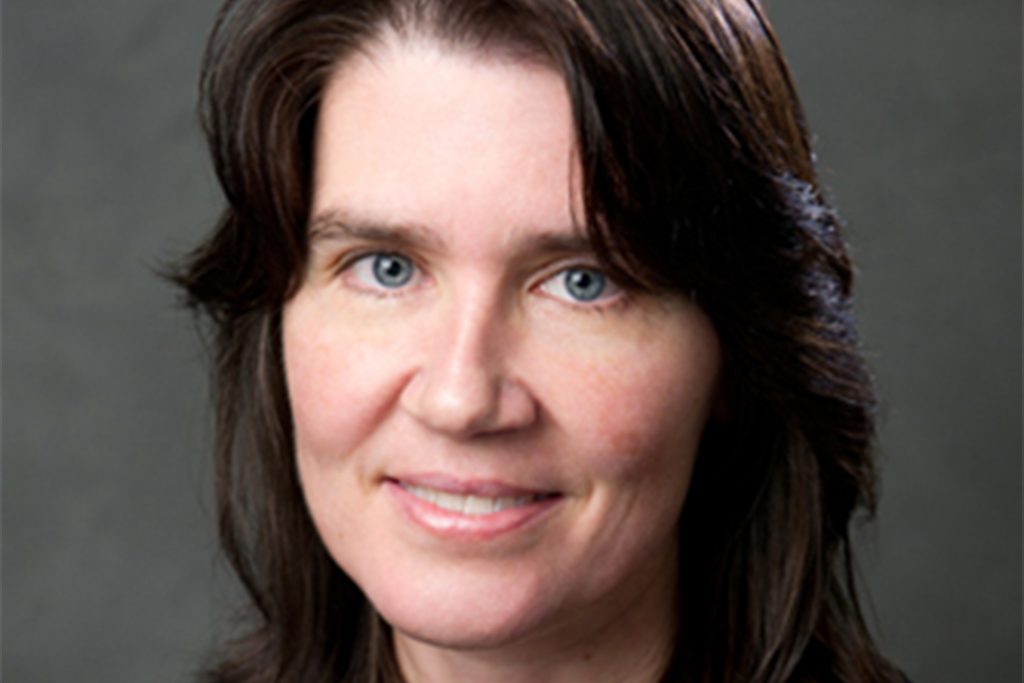Legal information librarian Karen Breda, who has worked at Boston College Law School for more than a decade, recently brushed off her law license, entered her appearance in a case, and convinced an en banc panel of the US Court of Appeals for the Ninth Circuit to resolve a circuit split by reversing 13-year-old precedent. She did so in concert with BC Law Professor Kari Hong, who has prepared more than 100 actions in the court.
Here’s how the case, Monssef Cheneau v. Merrick B. Garland, developed.
For the past 12 years, even before she joined the BC Law faculty, Hong had been representing Monseff Cheneau, who was claiming to be a US citizen. When he was 14 years old, his parents divorced and his mother had sole custody of him. They moved to the United States, he entered with a student visa, and his mother became a US citizen. When he was 15 years old, his mother filed an application to make him a lawful permanent resident, but the agency lost the file and later sent the interview notice to the wrong address. When the agency discovered the mistake, it reopened the case and granted Cheneau his green card when he was 18 years and 8 months old.
Later in life, Cheneau had a run-in with the law, and the immigration agency wanted to deport him. His defense was that he became a citizen when he had first applied for his green card at age 15. Derivative citizenship, the process by which children of citizens become US citizens, is one of the most highly complicated laws in the immigration system.
There are over 13 different versions of the law in effect, depending on when the child was born, the marital status of her parents, and when her parents became US citizens. For Cheneau, his status depended on whether the meaning of a provision that provided that before 18 he must either be “residing in the United States pursuant to a lawful admission for permanent residence at the time of the naturalization of [his] parent] . . . or [he] thereafter begin to reside permanently in the United States while under the age of eighteen.”
In the 2008 case Romero-Ruiz v. Mukasey, the Ninth Circuit had reasoned that those two clauses both required a child to have secured a green card before age 18. In 2013 and 2016, the Second Circuit and First Circuit disagreed, reasoning that those two clauses have different meanings and the latter one is met when the child evidences “some objective official manifestation…of permanent residence.” In August 2020, a three-judge panel of the Ninth Circuit weighed in, noting that “we are on the wrong side of the circuit split.” Specifically, “Romero-Ruiz was phrased too broadly and established a rule that, although understandable in the circumstances presented in that case, leads to an incorrect result when applied here.”
Hong then sent Breda the briefs, the court decision, and a question: How does a deep dive into all of relevant legislative history resolve the legal question presented in this case?
That is when Breda went to work.
She was able to locate legislative history and case law relating to every single citizenship bill dating from 1790 to the present. “I was floored by her findings,” Hong said. “I had been working on this case for years but Karen found legislative history that neither I had found nor the other court cases had discussed. Not only had she found these treasures, but she sent me a memorandum that methodically and precisely explained how different parts of the prior laws expressly addressed the legal points discussed in the case.”
Breda then entered her appearance as co-counsel and helped author the en banc petition, which asked the full court to reconsider its prior ruling in light of the new material.
What Breda found supported the Second Circuit’s reading that Congress had intended for a child to have two pathways to become a citizen: based on living in the United States with an intent to remain permanently or later acquiring a green card, which they could have done while living abroad.
In 1790, when Congress first created a law allowing for citizenship, it conditioned that a child only need to be “dwelling” in the United States before age 18, which in 1907, Congress changed to the phrase “begins to reside permanently,” which was used in the statute relevant to Cheneau’s status.
In the en banc decision, the 7-4 decision ultimately sided with Cheneau’s argument and the debate between the majority and dissent rested in part on the legislative history that Breda had found and presented to the Court for its consideration.
“Karen is a magician and is always able to locate the most relevant pieces of evidence, no matter how obscure they are,” said Hong, who founded BC Law’s Ninth Circuit Appellate Program. “Although this case was not part of the clinic’s workload, Karen has always advised the student teams and helped them locate relevant cases, statutes, and legislative history that we were unable to uncover without her remarkable skills.”
Breda feels similarly about her colleague and the program. “I have been so happy and honored to work alongside Kari Hong and to provide research support to the students in the Ninth Circuit Appeals clinic,” she said.


